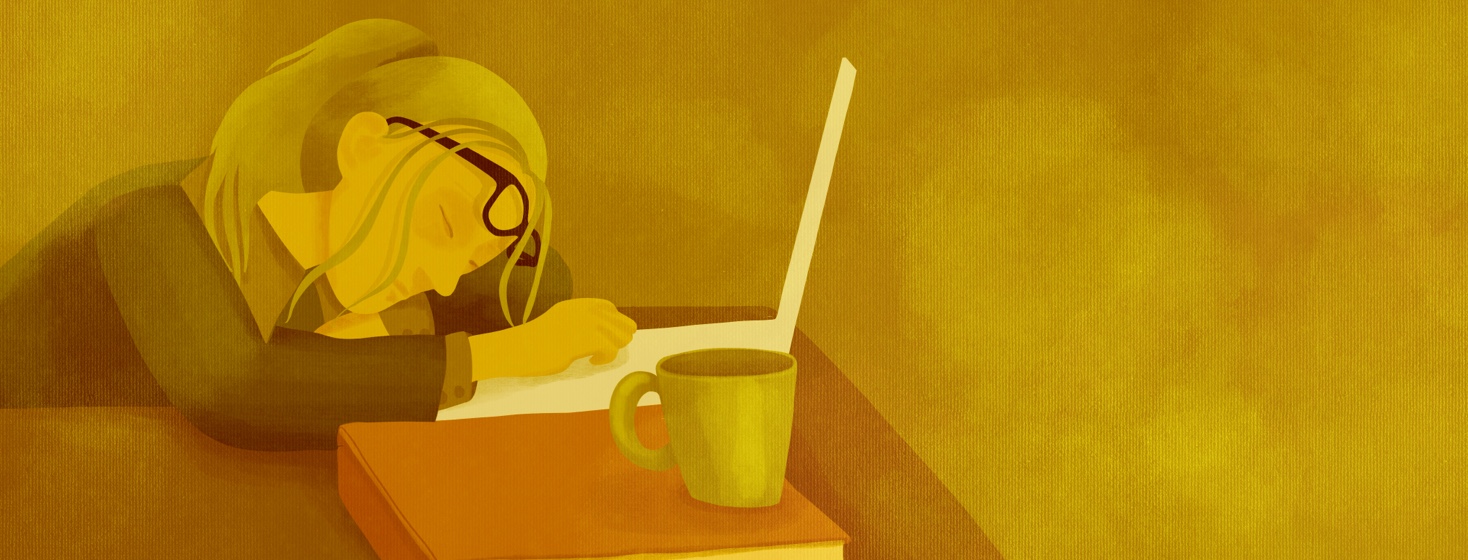Advanced Breast Cancer Fatigue
Fatigue is an extreme lack of energy or tiredness. It is more than simply being sleepy – it feels like utter exhaustion. Cancer-related fatigue is very common and also very different from the fatigue of daily life.1
In our 2020 Advanced Breast Cancer In America survey, we explored how fatigue impacts those living with the condition. To further highlight the role that fatigue has in the lives of people with advanced breast cancer (ABC), we have also shared experiences from ABC community members below.
ABC fatigue common, yet humbling and life-altering
“No amount of caffeine or willpower or any other trick I've ever learned is sufficient to deal with this level of fatigue.” – ABC community member
Fatigue is common for those living with ABC. More than 80 percent of people who completed the survey said they have experienced fatigue.
Fatigue is also a frequent challenge, with more than 70 percent of respondents saying they have experienced it in the past month. Fatigue can make thinking and moving difficult. Even basic, small activities can be exhausting. One community member described their fatigue as humbling, life-altering, and real.1
Treatment often causes fatigue
“I vividly remember the first Monday after the first infusion when I got up to go to work. I made it to the car and the 1-mile drive to my office and just couldn't make it further. I felt as though my body had betrayed me.” – ABC community member
Fatigue can be caused by cancer itself or as a side effect of cancer treatment. Those who completed the survey shared that they have tried a variety of treatment options, and many said side effects were factored into their treatment decisions:
- 65 percent of respondents are currently using a targeted therapy or immunotherapy
- 63 percent of respondents are currently using a hormone therapy
- 23 percent said potential side effects were a top treatment decision factor
How and why cancer treatment causes fatigue is not well understood. The American Cancer Society suggests that treatment can change protein and hormone levels in the body, which can cause fatigue. Fatigue from treatment is different for everyone. It can last for weeks, months, or years.1
The emotional toll is a heavy weight
“The emotional weight of [metastatic breast cancer] is heavy, like nothing I've ever dealt with. Sure, I might be able to put it in a box and put it away so I can focus on something for a bit, but it always comes back. That emotional weight causes physical fatigue.” – ABC community member
Learning you have advanced breast cancer can be life-altering. Those who completed our survey said their ABC diagnosis stirred up emotions like anxiety, depression, loneliness, and fear. Many respondents said dealing with the ups and downs of these emotions can be exhausting and overwhelming. In fact, 62 percent said they need emotional support while on their ABC journey.
Exhaustion from information overload is real
“Information exhaustion often happens, at least for me, at the end of a long day of appointments when I have received a significant amount of new information, have important decisions to make, and I am mentally exhausted. It tends to fall into step with mental exhaustion.” – ABC community member
The sheer amount of information people living with ABC have to absorb can be overwhelming, to the point of exhaustion. Soaking up information from doctors, pharmacists, and treatment specialists can be trying. Plus, reading up on the latest treatments, nutrition, and symptom management can put anyone into information overload.
While too much information can be taxing, 69 percent of those who took the survey said they were interested in learning about new breast cancer treatments. Plus, 60 percent were also interested in learning more about the side effects of breast cancer treatments.
Managing fatigue
“It is the process of trying to think while your brain feels like it’s being repeatedly dunked in pea soup, and also trying to remember what time your next appointment is and what medications you need to take, and when. That’s on top of all of the normal things to remember.” – ABC community member
Because fatigue can have multiple causes, it can be hard to control. According to the results of our 2020 Fatigue & Health survey, only 20 percent of people with chronic health conditions have a fatigue treatment plan in place with their doctor. About 33 percent of those respondents are in agreement with their doctor about fatigue.
Talking to your doctors can be helpful. Your cancer care team might have you try different approaches to manage fatigue. Yoga, massage therapy, counseling, and nutritional guidance can be helpful in treating fatigue.1
You might also find it helpful to enjoy short naps, take walks, avoid caffeine, and adjust your medicine to help fight fatigue.1
The 2020 Advanced Breast Cancer In America survey was conducted online from September 2019 through February 2020. The survey was completed by 592 people.
The 2020 Fatigue & Health survey was conducted online from March through May 2020. The survey was completed by 2,591 people.

Join the conversation